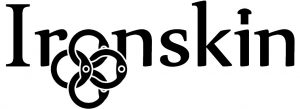Chainmail Wire on Amazon
This is a list of wires on Amazon for making riveted or butted chainmail. It follows the recommendations from the Chainmail Materials Chapter and the Ring Size Chapter. When you follow the links and buy items, you are supporting this site. As an Amazon Associate, we earn a small share for qualified purchases. That works without any additional cost for you.
Wire for Riveted Chainmail
Riveted chainmail needs to be made with soft wire to go easy on the tools.
Annealed Iron Wire for Authentic Rings
This wire is the best material for medieval chainmail – or at least the closest that you can reasonably get without smelting iron yourself. I recommend 18 Gauge (1mm) for 6mm rings, 16 Gauge (1.3mm) for 8mm rings, and 14 Gauge (1.6mm) for 10mm rings.
Brass Wire for Authentic Decorative Rings
Brass wire is typically used for the decorative hems and edgings on historic mail shirts throughout the ages. Such rings can be riveted or butted even when the iron rings are riveted. There are 18 Gauge (1mm) for 6mm rings, 16 Gauge (1.3mm) for 8mm rings, and 14 Gauge (1.6mm) for 10mm rings.
Aluminum Wire for Lightweight Mail
With aluminum, it’s actually easier to make your first riveted rings because it’s very soft. For that reason, I recommend using slightly stronger wire: 16 Gauge (1.3mm) for 6mm rings and 14 Gauge (1.6mm) for 8mm rings.
Titanium Wire for Even Lighter Mail
With this titanium alloy wire, you can make ultra-lightweight chainmail. If your ordinary iron or steel mail-shirt weighs 9kg, a similar titanium shirt weighs only 5kg. It is not historically accurate but it looks like it. There are 18 Gauge (1mm) for 6mm rings and 16 Gauge (1.3mm) for 8mm rings.
Copper Wire for Practising and Decorations
The beautiful thing about copper is its transition from a shiny red to a dark greenish patina. It’s soft enough to practice making riveted rings.
Wire for Butted Chainmail
Butted Rings should be sturdy to stay closed. Thus you need hard and springy wires.
Stainless Steel for Shiny Bright Rings
Stainless Steel makes your rings shine bright. I recommend 16 Gauge (1.3mm) for 6mm rings, 14 Gauge (1.6mm) for 8mm rings, and 12 Gauge (2mm) for 12mm rings.
Spring Wire for Strong Butted Rings
Spring Steel has high carbon content. Rings from that wire are comparably harder to close, yet also harder to open. There is 16 Gauge (1.3mm) for 6mm rings and 14 Gauge (1.6mm) for 8mm rings.
Colored Aluminum Wire for Marker Rings
This is a beautiful material for making colorful rings. I use them to mark positions when I tailor chainmail.
Make Your own Wire
You can draw your own wire and produce various wire gauges. All you need is a draw plate and tongs with a firm grip.
Tungsten Carbide Wire-Drawing-Plate
A draw plate is simple: You pull wire through holes to reduce the diameter step by step. These holes are made from extra hard Tungsten Carbide to allow you to pull all types of metal.
Tongs for Wire Drawing
These tongs have a rough, spiky surface at their jaws that help to grab the wire firmly. You can attach a loop of rope or a big metal chain.
You want to see more chainmail tools?










